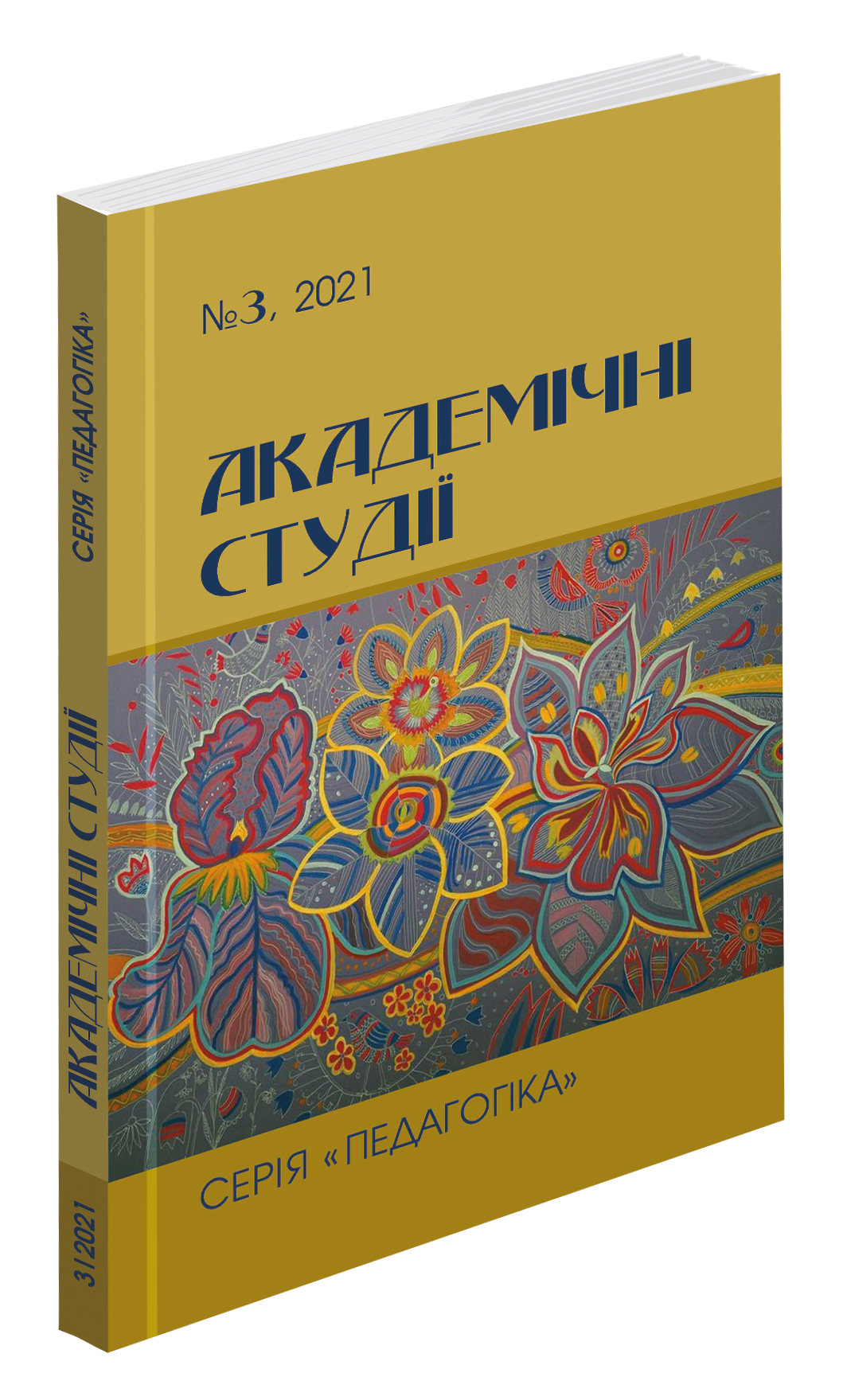Abstract
The article highlights the current problem of using Ukrainian folklore as an important potential of national culture in the development of musical abilities of primary school children. Based on a careful analysis of the scientific fund, the essence of the concepts of “folklore”, “musical abilities” is clarified, the author's definition of the studied phenomenon is generalized and made. The principle and conditions of successful development of the researched process are singled out. The key provisions of classical composers M. Lysenko, M. Leontovych, K. Stetsenko, J. Stepovy, M. Revutsky regarding the use of music and song folklore in the musical education of schoolchildren are highlighted. Lists of characteristics of the type of their works and methods of work on the development of musical abilities of primary school students are given. Weighed conclusions are made and proposals for further research in the selected area are outlined. From the standpoint of our study, among the genres of Ukrainian folklore, small folklore genres (entertainers, counters, nicknames, myrylky, sayings, colloquialisms, riddles, riddles, proverbs, sayings, wishes, appeals) and folk songs are an inexhaustible source of folk spirituality and morality an integral part of personality education. It is proved that the organized activity of students in the process of comprehending the aesthetic values of musical art satisfies their desire to act independently, actively encourages penetration into the performing possibilities of music. The criteria and indicators of the formation of musical abilities of junior schoolchildren developed by O. Koval deserves attention. The author includes: emotional and plastic response to music; manifestation of auditory attention; expressive performance of the work; selectivity of musical interests and musical desires; emotional fascination with various musical activities (perception, performance, creativity); awareness of the connection between music and life; originality of judgments about music; ability to analyze and interpret the work; manifestation of a holistic attitude to musical works. We note especially valuable the judgment of M. Lysenko that the whole system of musical education of schoolchildren should be based on the national basis, on the widespread use of folklore, on the relationship of teachers with students. According to M. Lysenko, the basis of children's musical education should be children's folk games with folk songs, dances and movements: “What is perceived in childhood through games and entertainment, is then stored in the soul for life”.
References
Асаф’єв Б. Музыкальная форма как процес. Ленинград: Музыка, 1971. 376 с.
Семенов О. С. Обґрунтування парадигми індивідуальності як наслідок кризи особистісного підходу. Матеріали V Міжнародної науково-практичної конференції. Актуальні проблеми педагогічної освіти: європейський і національний вимір. 12–15 жовтня 2020 року. С. 55–57.
Сисоєва С. О. Основи педагогічної творчості: підручник. Київ : Міленіум, 2006. 346 с.
Енциклопедія освіти. Академія педагогічних наук України. Київ : Юрінком Інтер, 2008. 1040 с.
Бех І. Д. Виховання особистості. Особистісно орієнтований підхід: науково-практичні засади. Київ : Либідь, 2003. 344 с.
Трифанова О. С., Кисельова О. І. Морально етичне виховання дітей дошкільного віку. Леонографія. Одеса : Видавець М. П. Черкасів, 2010. 239 с.
Кузова І. Б. Вплив ігрової діяльності на розвиток музично-творчих здібностей дошкільників з особливими потребами. Культура й розвиток особистості: міфи та реалії в психології й педагогіці. Матеріали міжнародної науково-практичної конференції. 24–25 червня 2009 року. С. 184–190.
Сухомлинський В. О. Роки дитинства. Твори в 5 т. Київ : 1997. Т.3. 308 с.
Теплов Б. М. Проблеми индивидуальних различий. Москва: 1961. 205 с.
Гусєв В. Е. Эстетика фольклора. Лененград, 1967. 274 с.
Лисенко М. Про народну пісню і народність у музиці. Київ : Музична Україна, 1955. 221 с.
Леонтович М. Народні пісні. Київ : Видавництво Дніпросоюзу. 1921. 184 с.
Руда О. С. Педагогічні умови ефективного розвитку музичних здібностей молодших школярів в процесі ігрової діяльності. Наукові записки Центрально-українського державного педагогічного університету імені В. Виниченка. Серія: Педагогічні науки. Київ, 2018. Випуск 163. С. 210–115.
Коваль О. В. Формування музичних здібностей молодших школярів на уроках музики : автореферат дисертації кандидата педагогічних наук: СЖУ: 13.00.02. Ніжинський державний педагогічний університет ім. Миколи Гоголя. Київ, 2002. 251 с.

